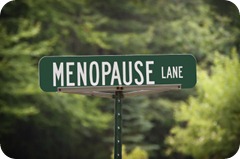St. John’s wort products and extracts have been used for a wide range of medical conditions, the most common being depressive disorders. The most robust research is in the area of mild to moderate depression, with some additional research in anxiety, severe depression, seasonal affective disorder, premenstrual syndrome, and perimenopause/menopause. St. John’s wort is the most thoroughly researched natural antidepressant, but the majority of these studies have not been conducted on menopausal women.
A study of St John’s wort liquid extract showed a statistically decline in hot flashes severity, duration and frequency in the SJW group compared to placebo at week 8.[1]
Another double blind randomized clinical trial demonstrated that after 3 months of treatment, women in the St. John’s wort group reported significantly better quality of life scores, and significantly fewer sleep problems compared to placebo. [2]
About ten years ago, a non placebo controlled, drug monitoring study was conducted in women with menopause symptoms using 900 mg of St. Johns wort for 12 weeks. About three quarters of the women experienced improvement in both the self-rating scale and the physician rating, and significantly improved in psychological and psychosomatic symptoms as well as a feeling of sexual well-being.[3]
The first of three studies using St. John’s wort and black cohosh was published in 1999. This double-blind, randomized, placebo-controlled trial used St. John’s wort and black cohosh made by the makers of Remifemin.[4] The Kupperman index for the combination product decreased from 31.4 to 18.7 compared with a decrease in the placebo group from 30.3 to 22.3. Psychological symptoms also improved significantly in the black cohosh/St. John’s wort combination group.
A double-blind randomized placebo-controlled study was done using a combination trial of black cohosh and St. John’s wort. The mean Menopause Rating Scale score decreased 50% in the treatment group and 19.6% in the placebo group.[5] The Hamilton Depression Rating Scale score decreased 41.8% in the treatment group and 12.7% in the placebo group. In both testing measures the St. John’s wort + black cohosh group was significantly superior to the placebo group.
Another black cohosh/St. John’s wort trial was carried out in peri or postmenopausal Korean women, and was published in 2007.[6] Mean Kupperman index scores at 4 and 12 weeks were significantly lower in the treatment group (P < 0.002). At the end of the study, the average decrease in the Kupperman Index was 20 points in the treatment group and only 8.2 points in the placebo group (P < 0.001). Vaginal dryness and low libido were two symptoms that did not improve, but the average hot flash scores were significantly lower in the black cohosh/St. Johns wort group.
Finally, a study was done in which a combination of black cohosh with or without St. John’s wort was used in 6141 women at 1287 outpatient gynecologists in Germany in a prospective, controlled open-label observational study.[7] The greatest changes occurred with the combination therapy for nervousness/irritability and mood swings, but in the area of depression, there was a reduction in both treatment groups.
St. John’s wort is emerging as an important clinical tool in treating perimenopausal/menopausal women—for hot flashes and/or depression and/or mood swings, as a single agent, or in combination with other therapies.
References
[1] Abdali K, Khajehei M, Tabatabaee R. Effect of St. John’s wort on severity, frequency, and duration of hot flashes in premenopausal, perimenopausal and postmenopausal women: a randomized, double-blind, placebo-controlled study. Menopause 2010;17(2): 326-331.
[2] Al-Akoum M, Maunsell E, Verreault R, Provencher L, Otis H, Dodin S. Effects of Hypericum perforatum (St. John’s wort) on hot flashes and quality of life in perimenopausal women: a randomized pilot trial. Menopause. 2009 Mar-Apr;16(2):307-14.
[3] Grube B, Walper A, Whatley D. St. John’s wort extract: Efficacy for menopasual symptoms of psychological origin. Adv Ther 1999;16:177.
[4] Boblitz N, Schrader E, Henneicke-Von Zepelin H, et al. Benefit of a fixed drug combination containing St. John’s wort and black cohosh for climacteric patients-results of a randomised clinical trial )poster presentation from 6th Annual Symposium on Complementary Health Care, Exeter, England, December 2-4 1999). Focus Alt Comp Ther 2000;5(1):85-86.
[5] Uebelhack R, Jens-Uwe Blohmer, et al. Black cohosh and St. john’s wort for climacteric complaints. Obstet Gynecol 2006;107:247-255.
[6] Chung D, Kim H, Park K, et al. Black cohosh and St. John’s wort (GYNO-Plus) for climacteric symptoms. Yonsei Med J 2007;48(2):289-294.
[7] Briese V, Stammwitz U, Friede M, et al. Black cohosh with or without St. John’s wort for symptom-specific climacteric treatment- Results of a large-scale, controlled, observational study. Maturitas 2007;57:405-414.

